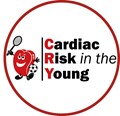Story
Pioneering heart charity, Cardiac Risk in the Young (CRY) and VICTOR, the private air charter company, are delighted to announce a new collaboration, which will see Victor’s staff strive to raise awareness and funds to help CRY in its ongoing mission to prevent the tragedy of young sudden cardiac death (YSCD).
VICTOR reached out to CRY following the sudden death of the company’s Director of Sales, Dan Cook earlier this year. Tragically, Dan collapsed and died whilst at the gym. He was aged just 33 and his death sent shockwaves across the company and wider VICTOR community with friends and many who knew him, who have since vowed to raise awareness and funds as part of a lasting legacy to our much missed colleague.
Toby Edwards, co-CEO of VICTOR states, “We are honoured to partner with CRY, an extraordinary charity dedicated to reducing the risk of cardiac arrest in young people. Earlier this year, we lost our dear friend and colleague, Dan Cook, to cardiac arrest—a tragedy that has deeply affected everyone at VICTOR. Through this partnership, we aim to raise both funds and awareness to help diagnose cardiac abnormalities in young people and to offer support to those who, like us, have experienced the heartbreak and devastation of losing a loved one. Together with the amazing team at CRY, we are determined to continue Dan’s legacy and make a meaningful impact in his memory.
Every week in the UK at least 12 young people die of undiagnosed heart conditions. Since its formation in 1995, Cardiac Risk in the Young (CRY) has been working to reduce the frequency of young sudden cardiac death (YSCD). CRY supports young people diagnosed with potentially life-threatening cardiac conditions and offers bereavement support to families affected by YSCD. CRY promotes and develops heart screening programmes and funds medical research. CRY publishes and distributes medical information written by leading cardiologists for the general public. CRY funds specialist referral, screening and cardiac pathology services at leading UK hospitals.
 Campaign by
Campaign by